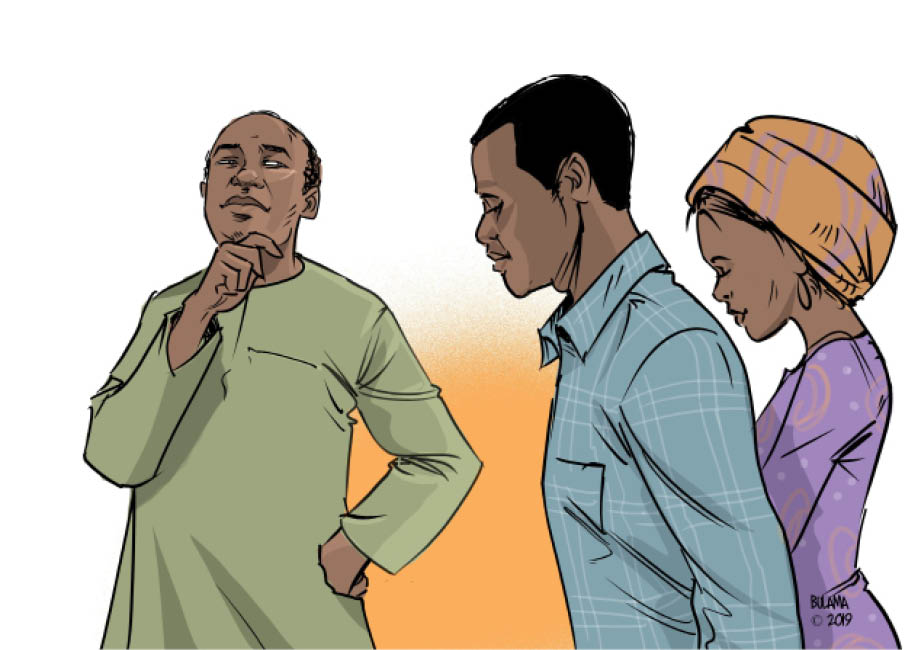Should family background influence choice of spouse?
There are variations of African sayings that ‘you don’t marry a person, you marry his/her entire family’, which invariably means that one’s family background comes to play when choosing a spouse. Background in this context is not necessarily limited to financial wherewithal. In the traditional Igbo society, when a man expresses interest in a woman, […]

There are variations of African sayings that ‘you don’t marry a person, you marry his/her entire family’, which invariably means that one’s family background comes to play when choosing a spouse.
Background in this context is not necessarily limited to financial wherewithal.
In the traditional Igbo society, when a man expresses interest in a woman, both families go on a fact-finding mission. It could range from checking the families’ financial strength, the health history, behaviour and so on.
Based on facts gathered, families would accept or reject a proposal. This implies that the sins or blessings of the family or a member of the family can be visited on a potential spouse.
In this millennium and age, should these still be the norm? Should a person’s family background be a determinant in choosing a spouse? LifeXtra sought people’s opinions.
“I think it shouldn’t be a barrier but sadly in Nigeria it is. I suffered because of it because I was told that my late mum was troublesome and tough,” says Mercy Okun (not her real name).
Mercy added that “I was told she fought and kept malice with almost everybody. That was the reason the family of the man I loved so much refused to allow him marry me.”
Mercy, who said she never knew her mother because she died when she and her siblings were still little, said the stories she heard about her mother from relatives showed she was a very troublesome person.
As such “when my boyfriend’s relatives asked around, they were told I come from a family of troublemakers and that was the reason why I was rejected,” she said.
Mercy believes one’s family background should not be a determinant to deciding who to marry because it might not be a true reflection of the person.
“His family believed I would be quarrelsome like my mum and might cause trouble for them, but I am a peace loving person,” the 27-year-old entrepreneur said.
Maryam Shuaibu, a teacher based in Gwagwalada, also thinks it is not necessary to look into the family’s background before choosing a spouse to settle down with.
But she believes since most elders in the family view potential-spouse fact-finding as important, then it shouldn’t be overlooked.
“When my sister was about to get married, someone told our grandma that some of her husband’s family members were possessed by jinns (spirits) and so the wedding was cancelled,” she said.
“My family believed that she will find things difficult when the jinn attacks begin,” she said.
Shamsudeen Yaqub, a civil servant, said some families’ names and backgrounds help in opening doors and opportunities and that is why many parents would love their children to marry into famous families.
“Imagine marrying into the president’s family or the Indimis. Of course such union would open doors for you,” he said.
Shamsudeen said he got a job placement in one of the agencies in Abuja after he paid a sum of N300,000 to an agent. “If I am from a famous family, would I pay for the employment? I would be placed in one of the huge revenue generating agencies that pay their staff well,” he added.
Nkechi Johnson (not real name) says “the millennial and pessimist in me would say investigating a spouse is overrated because after all these investigations, people still end up in bad marriages. So what is the point really?”
Nkechi says “I can understand why these investigations are done. Even though love should be the basis irrespective of the results of the investigations, but it would be good to go into the marriage with knowledge and prepared.”
“Investigations can make you understand a family’s health history which is very important, however note that fact finding is easier done for people living in smaller communities.”
She explained that due to industralisation, people now live far away from their villages, so going to their villages to make inquires might not yield accurate result as these second and/or third generation city people are far removed from their villages. The things happening around their extended family might not be applicable to them, Nkechi explains.
